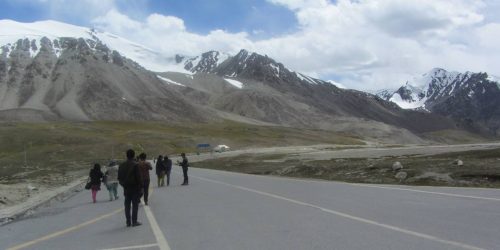ISLAMABAD, July 17 (Thomson Reuters Foundation) – For 20 years, Khunjerab National Park was a point of tension between Pakistan’s government – which established the park in 1975 as a sanctuary for rare species – and locals who had grazed their livestock on the land for generations.
As disputes over the land raged, poachers decimated Khunjerab’s wildlife, villagers say – until 1995, when local people and the authorities decided to work together to better protect the park.
“Our communities knew about natural resource management (and) we were well organised,” said Muzaffar ud Din, a founding member of the local Shimshal Nature Trust, which contributed members to a community-led management group set up to run the park.
“Now I would say Khunjerab is better managed than many other parks in the country. The local people look after it. The wildlife population has increased manifold,” he said.
In its latest move to generate jobs amid the COVID-19 pandemic while boosting conservation and curbing the impacts of climate change, Pakistan has announced the creation of Pakistan’s first National Parks Service, modeled on the U.S. agency.
Under it, the country aims to get more local communities involved in running national parks and earning an income as they protect nearby conservation areas.
The first phase of the Protected Areas Initiative, launched on July 2, will focus on 15 national parks that make up a total of 7,300 sq km (2,800 sq miles), spanning from Khunjerab in the north to the area around Astola Island in the south.
The project aims to create up to 5,000 new jobs, mainly for young people who will work as park guards and custodians, and boost eco-tourism in the country, authorities said when the initiative was announced.
Malik Amin Aslam, climate change advisor to Prime Minister Imran Khan, said the parks plan fits into Pakistan’s post-coronavirus “green stimulus” vision, which also includes hiring thousands of unemployed day labourers to plant trees as part of the country’s 10 Billion Tree Tsunami programme.
“The dual objective is to protect nature while also generating jobs for unemployed youth,” he told the Thomson Reuters Foundation.
“All this green activity will aid in addressing the unexpected spike in COVID-linked unemployment across the country.






